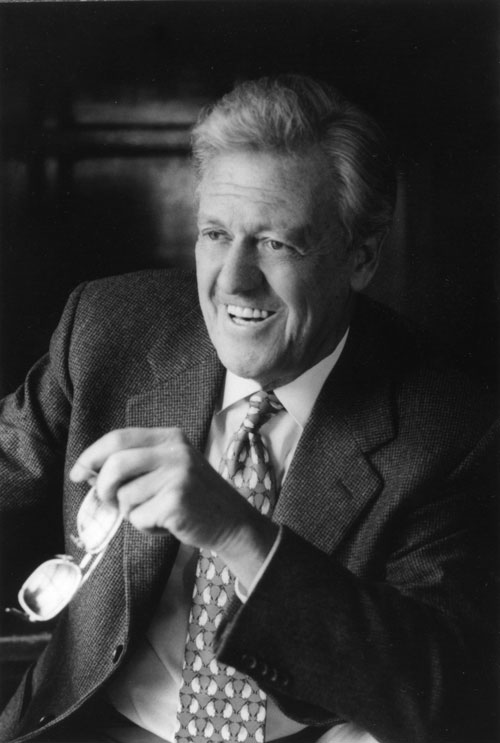« October 30, 2011 - November 05, 2011 | Main | November 13, 2011 - November 19, 2011 »
November 11, 2011
France's Sarkozy: How about a 2-Tiered Europe?
We think not--but let's hear out a European leader who has wanted all along for Europe to start working again. The Economist's enduring columunist Charlemagne asks "Two-speed Europe, or two Europes?" It begins:
Nicolas Sarkozy is causing a big stir after calling on November 8th for a two-speed Europe: a “federal” core of the 17 members of the euro zone, with a looser “confederal” outer band of the ten non-euro members. He made the comments during a debate with students at the University of Strasbourg.

Posted by JD Hull at 09:50 AM | Comments (0)
November 10, 2011
China IP: Beating China-Based Domain Name Theft.
See at Dan Harris's consistently fine and useful China Law Blog this one by Rachel Buker: "How To Stop China-Based Domain Name Theft". Excerpt:
We frequently see the following sorts of domain name thefts, oftentimes by Chinese companies seeking to hone in on a well-known brand name:
Domain names that intentionally contain a common typo of a known trademark.
Domain names that take a known trademark and attach a generic word like “outlet” or a word descriptive of the product, such as “shoes."
Domain names that are exactly the same as a known trademark’s domain name, but with a different extension. For example, abc.net, instead of abc.com.

Above: China Barbie. We needed a graphic.
Posted by JD Hull at 11:59 PM | Comments (0)
At Cross-Culture: "U.S. Optimism Remains—You Just Might Not Recognize It."
See this guest post by American prof Tim Flood at Richard Lewis's Cross-Culture. Not sure I buy that "US optimism is inherently contentious" but do think he's right that we are noisy if happy well-meaning wariors when we talk to each other--and we always have been. Excerpt:
For people who don’t know the US and Americans well, I should clarify what makes American optimism:
US optimism is inherently contentious. Americans routinely embrace the role of “devil’s advocate” in a discussion, representing the opposing viewpoint as a way to stimulate thoughtfulness, test the hypothesis, or show interest in the issue. We argue almost routinely, so much so that the actual act of arguing rarely carries the negative impact that observers might perceive.
And we carry this contentious optimism through most political discussions, election cycles and presidential selections. Energetic argument is the grease that lubricates the machine: often messy, sometimes overly slick or seemingly inconsequential. Regardless of political affiliation, we value our candidates for their abilities to stand up to the scrutiny, to defend themselves and their ideas as they pitch their versions of positive change and a better future.

R.D. Lewis
Posted by JD Hull at 11:50 PM | Comments (0)
November 09, 2011
Use Your Real Name on the Internet. "Chattooga River Cutie" doesn't cut it.

Man up there, Hoss. Blog and comment under Your Real Name. You're not Alexander Hamilton, James Madison or an Iranian dissident. Well--okay, okay--some rape victims are okay. Certainly, if he were real, Ned Beatty's character Bobby in the movie adaptation of the James Dickey novel Deliverance would be permitted to write in the blogosphere using a pseudonym. "Chattooga River Cutie", maybe. Those not in Club Ned? Real name, please. Or don't never come round here no more. 'Hear?
Posted by JD Hull at 11:00 PM | Comments (0)
Happy to be heading back to DC again. San Diego gorgeous but like Ohio with Water.
What was I thinking?
Posted by JD Hull at 12:59 AM | Comments (0)
November 07, 2011
The Economist: "First Greece? Next Italy?"
As Greece forms a much-needed new government (MSNBC), some eyes turn to Italy. At the G20 summit that concluded in Cannes on November 4, Italy was placed under IMF monitoring. See in The Economist "Berlusconi Burlesque". Excerpt:
Though yields on its bonds have soared alarmingly, Italy has not had to seek a bail-out (not yet anyway). And in an attempt to ensure it does not succumb, bringing down the euro with it, it has been placed under a special preventive regime—placed on probation to ensure it implements the many promises it made to carry out reforms designed to promote growth and balance the budget by 2013.
The polite fiction is that Italy has "invited" this monitoring, but nobody makes any secret of the fact that the government of Silvio Berlusconi has a problem with “credibility”. Nicolas Sarkozy, the French president, says Italy’s case is “completely different” to that of Greece, which has galvanised the attention of the G20 summit, given the prospect that it may soon default on its debt.
By the same token, Italy’s position is now markedly worse than that of Spain, which until this summer had been seen as the country most likely to succumb after Greece, Ireland and Portugal. But Spain's outlook is now less dire as a result of a succession of reforms, and the decision by the prime minister, José Luis Rodríguez Zapatero, to step down at the next election later this month.

Italian Prime Minister Silvio Berlusconi in better years.
Posted by JD Hull at 11:59 PM | Comments (0)
Wades Point, St. Michaels, Eastern Shore, Maryland.

House built in 1819. Solitude, Lucy the Beagle, ghosts, Lily, me.
Posted by JD Hull at 12:15 PM | Comments (0)
November 06, 2011
Need Drive, Energy, Moxie, Gospel and Passion? Then Channel Baby Boomers.
Posted by JD Hull at 11:59 PM | Comments (0)
Lawyering: Why not invoice some hourly work promptly every 2 weeks?

Sound ideas: Julie McGuire
Billing twice a month keeps the client attuned in real-time to the actual economic demands of the project--and helps the client plan.
Real time billing: invoice the client promptly twice a month. Like everyone else, we expect the "future of law" to include different billing alternatives. However, by that we mean the following: billing the same client different ways depending on the difficulty and intensity of the work.
Generally, we see in the future more flat fees for "commodity" work. And we believe hourly rates will continue to dominate for complex and novel projects--particularly where the relationships are longstanding and solid between in-house departments and outside law firms.
Case-by-case judgments about "value"--not hours, flat fees, or hybrids--will drive most engagements.
One idea comes from our Pittsburgh partner and co-founder Julie McGuire, who does transactional and corporate tax work globally, and it seems to work especially well for intense or "fast-moving" projects--and when you are billing by the hour. Julie's done this successfully for transactional work, and some arbitrations, for years.
It's simple. If a new or existing client has litigation or a transaction which is particularly intense and time-consuming--especially in the initial stages--depart from your fee agreement or usual practice with that client and at least temporarily invoice the client every two weeks.
(That means you can't wait long to get the bills out, though. Give yourself three business days tops.)
Obviously, you should check with the client and get permission. But you are not likely to get shot down.
Even a gung-ho sophisticated corporate client or GC you've serviced for years--which if accustomed to seeing over and over again monthly bills for day-to-day work in the, say, $15,000 to $30,000 range--experiences a kind of sticker shock when the bill goes suddenly to $30,000, $60,000 or much higher, even if it's only for a short time. The "jump"--no matter what numbers are involved--triggers a reaction.
Billing twice a month does two things: (1) keeps the client more attuned in real-time to the actual economic demands of the project (and lets the client plan) and, (2) assuming that the GC or other client rep is seeing work descriptions on bills that show value, effort and the range of things necessary to perform the litigation or deal, the details and intensity of the work are more "present-to-mind", better understood and more fully appreciated.
In other words, the invoice becomes more of a tool to impart a running report on what you and the client are doing together--and a better picture of your real value to the client on that project.
(from past posts)
Posted by Holden Oliver (Kitzbühel Desk) at 12:59 AM | Comments (0)
ClientTown or LawyerTown? Which do you practice in?
Do you practice law in a (1) "clients' town" or (2) a "lawyers' town"?
The latter, very common, is a local culture where lawyer clubbiness, lawyer schedules and lawyer convenience always trump client needs behind the smokescreen of "professionalism". Here we meet the lawyer as king, diva and sacred cow.
In a lawyers' town, lawyers and their delays, lack of discipline, procrastinations, disorganization, lack of business sense and failure to execute and move matters along--failings which would get them axed in a heartbeat at a well-run American company--must always be indulged. And even the sleaziest and most marginal lawyers must treat each other and speak to each other in a certain way. Client interests are secondary. Well, if you practice in a lawyers' town, are you going to do anything about it? Can we show some leadership? Can we retire lawyer "professionalism" and "civility" issues once and for all and replace them with something better: a new client-focused set of folkways?
Sorry, but in its current form, lawyer professionalism is a morally pretentious, archaic, hypocritical and silly movement which lawyers' towns tend to invest in heavily to protect and coddle apathetic, mediocre and lazy lawyering. It keeps standards low, and the tone lawyer-centric. Current lawyer professionalism is: "pro-lawyer", prissy, routinely and dishonestly misused by incompetent and uncaring lawyers in defense of their delays and screw ups, a waste of time and money, and anti-client.
Just talking about it makes clients think we have our heads up our wazoos.
Face it, folks, most lawyers are not especially virtuous, or even that bright. Or classy. We are not royalty. Or even brave. Many of us are hesitant, non-confrontational and risk-averse to the point of being cowards who hide way too often in the rubric of "let's be prudent". To the surprise and dismay of our own clients--who had thought that lawyers were supposed to be innovators, activists and true heros--too few of us fit those descriptions. We follow. We hem and haw. We wet our finger and put it in the air. We aren't "special". And we are a dime a dozen.
Now, in the U.S., anyone with enough money, barely average intelligence, well below-the-norm ethics and character, and the ability to converse without stuttering or drooling excessively, can become a lawyer. So let's not put on goofy airs.
Real professionalism, with the client as the touchstone, might have been a good thing. But ironically lawyer "civility" issues have helped breed in modern U.S. lawyering an even lower regard for the client--even for great corporate clients. Clients risk being relegated to mere equipment. Listen: Unless your General Counsel or client rep is Mr. Rogers, The Church Lady or Liberace with a law degree, most clients don't care in the least if you are "professional" (i.e., courtly, accomodating and nice), or if you spend your spare time socializing with and kissing up to the local law cattle. They do care about planning, execution and results from motivated, honest and aggressive lawyers. See "Professionalism Revisited: What About the Client?", appearing last year in the San Diego Daily Transcript.
Posted by JD Hull at 12:12 AM | Comments (0)
"American Express: We can't help it. We hate customers. And we're complete assholes."
The following Customer Service Tip of American Express (its retail arm) comes to us via a youngish California employee of ours, and valued Amex cardholder (since 2001). She will remain, for good reasons, nameless.
The CS tip? The next time your firm's client--let's say Walmart; however, it could be any valued publicly-traded outfit for which you have worked for at least a decade--is due to an oversight more than three (3) days late paying your firm's invoice, by all means, do the following:
1. Call the Walmart GC, in-house lawyer or other Walmart exec your firm answers to in Bentonville, Arkansas, preferably on a Monday afternoon, around 4:45 EST, preferably the day after Easter Sunday, after Super Bowl Sunday, after a long weekend or as soon as Mardi Gras is over.
2. Don't leave a voice message. Keep calling.
3. The exact moment the in-house or client exec answers the phone, ask your long-time client rep who approves your invoices "Do you mind terribly, _________ [use rep's first name], if my assistant Nadine and I tape-record this conversation? We're collecting a debt." Then talk.
4. Important Note: Be poised to replace Walmart as an institutional client--perhaps with its Visa or Mastercard counterpart--as soon as practicable. Just in case.
.jpg)
American Express. We Can't Help It. We're Assholes.
Posted by JD Hull at 12:00 AM | Comments (0)